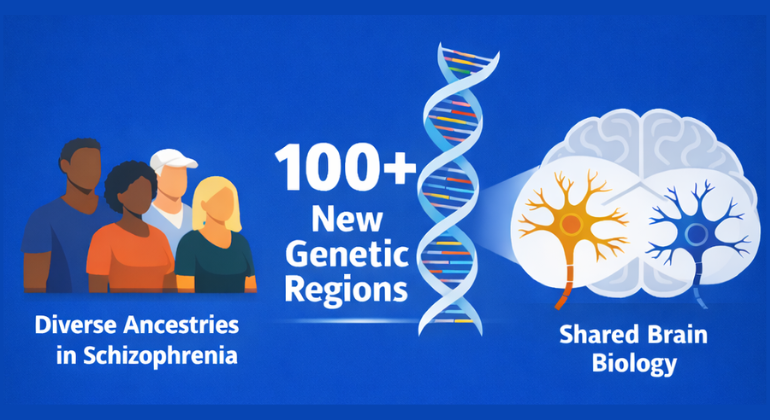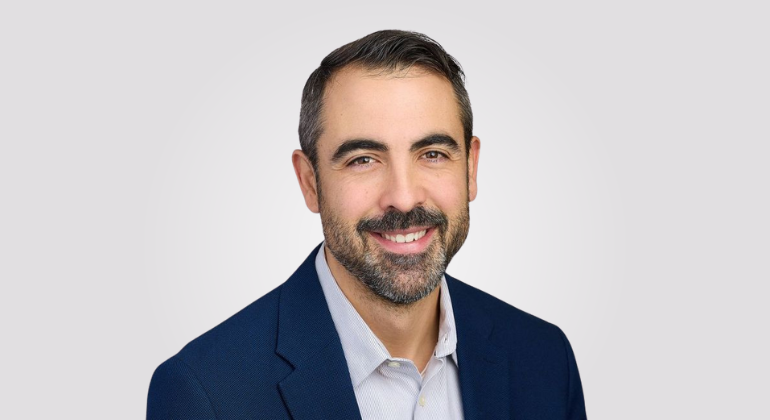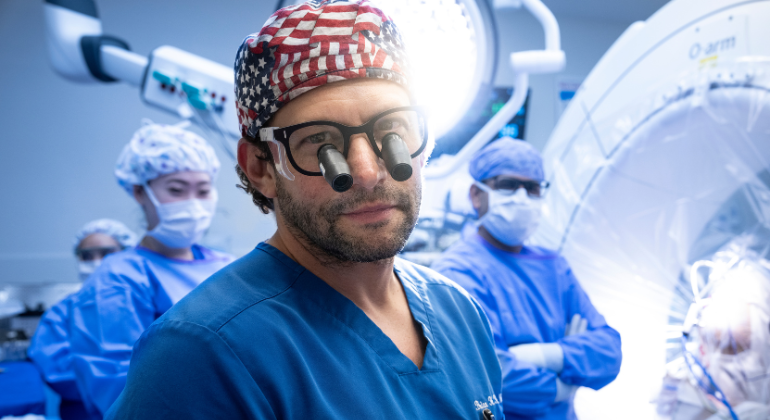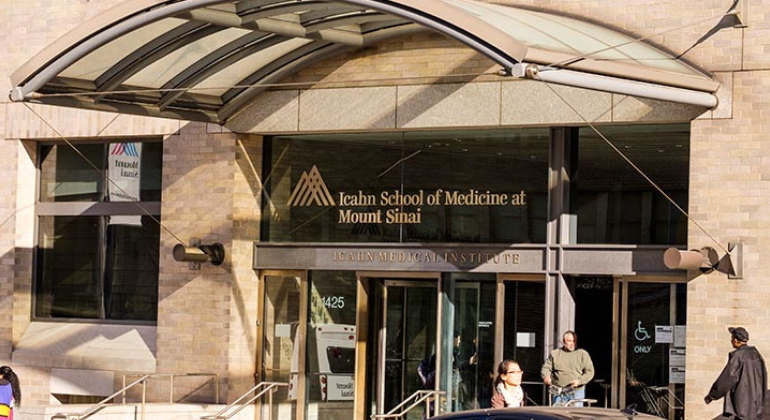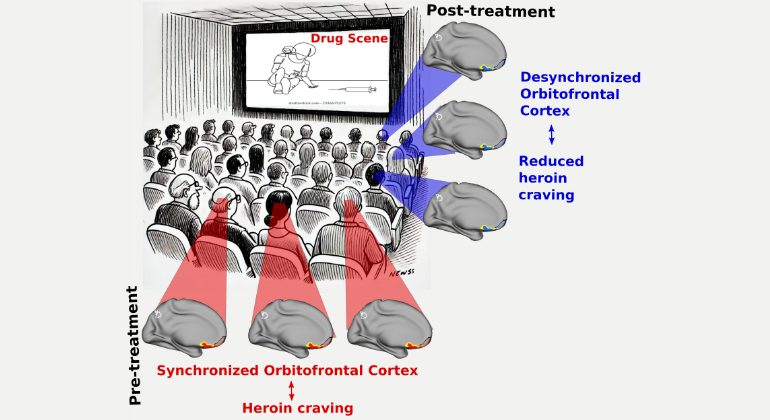Le Foundation Supports Psychiatry Neuroimaging Research
The Department of Psychiatry has received a $250,000 gift to advance neuroimaging research conducted by young scientists in the early stages of their careers.
The Department of Psychiatry at Mount Sinai School of Medicine has received a $250,000 gift from The Iris & Junming Le Foundation to advance neuroimaging research conducted by young scientists in the early stages of their careers. The donation will provide up to six grants for $35,000 to $45,000 for psychiatric neuroimaging pilot projects over the next two years. The goal is to advance researchers’ understanding of the etiology of major psychiatric disorders and identify new treatment strategies for patients.
"We are extraordinarily grateful to Dr. Le and his wife, Iris, for their support," says Wayne K. Goodman, MD, Chairman and the Esther and Joseph Klingenstein Professor in the Department of Psychiatry at Mount Sinai. "There is a pressing need to develop more effective treatments for major psychiatric illnesses such as schizophrenia and bipolar disorder. Thanks to this generous donation, we can better explore the neurocircuitry that contributes to these disorders, and ultimately use that knowledge to develop new therapies."
Major psychiatric disorders are thought to result from dysfunction within specific neural systems in the brain that govern a multitude of processes related to cognition and emotion. Using neuroimaging techniques, such as magnetic resonance imaging (MRI) and positron emission tomography (PET), researchers in the Department of Psychiatry hope to characterize how these neural systems function under different experimental conditions in patients with psychiatric disorders.
"Supporting research that is led by talented biomedical professionals will drive therapeutic discovery and improve the quality of life for patients suffering from psychiatric disorders," says Junming Le, PhD, Chairman of the Le Foundation and Adjunct Associate Professor of Microbiology at New York University. "It is our pleasure to contribute to the critical investigations being conducted in Mount Sinai’s Department of Psychiatry."
Dr. Le is best known for developing Remicade, a medication that treats autoimmune disorders like Crohn’s Disease and rheumatoid arthritis. Founded in 2007, The Iris and Junming Le Foundation supports health initiatives in research, education, and patient care. It also helps patients without health coverage who can benefit from new therapies.
About The Mount Sinai Medical Center
The Mount Sinai Medical Center encompasses both The Mount Sinai Hospital and Mount Sinai School of Medicine. Established in 1968, Mount Sinai School of Medicine is one of the leading medical schools in the United States. The Medical School is noted for innovation in education, biomedical research, clinical care delivery, and local and global community service. It has more than 3,400 faculty in 32 departments and 14 research institutes, and ranks among the top 20 medical schools both in National Institutes of Health (NIH) funding and by U.S. News & World Report.
The Mount Sinai Hospital, founded in 1852, is a 1,171-bed tertiary- and quaternary-care teaching facility and one of the nation’s oldest, largest and most-respected voluntary hospitals. In 2011, U.S. News & World Report ranked The Mount Sinai Hospital 16th on its elite Honor Roll of the nation’s top hospitals based on reputation, safety, and other patient-care factors. Of the top 20 hospitals in the United States, Mount Sinai is one of 12 integrated academic medical centers whose medical school ranks among the top 20 in NIH funding and U.S. News & World Report and whose hospital is on the U.S. News & World Report Honor Roll. Nearly 60,000 people were treated at Mount Sinai as inpatients last year, and approximately 560,000 outpatient visits took place.
For more information, visit http://www.mountsinai.org/.
Find Mount Sinai on:
Facebook: http://www.facebook.com/mountsinainyc
Twitter @mountsinainyc
YouTube: http://www.youtube.com/mountsinainy
About the Mount Sinai Health System
Mount Sinai Health System is one of the largest academic medical systems in the New York metro area, with 48,000 employees working across seven hospitals, more than 400 outpatient practices, more than 600 research and clinical labs, a school of nursing, and a leading school of medicine and graduate education. Mount Sinai advances health for all people, everywhere, by taking on the most complex health care challenges of our time—discovering and applying new scientific learning and knowledge; developing safer, more effective treatments; educating the next generation of medical leaders and innovators; and supporting local communities by delivering high-quality care to all who need it.
Through the integration of its hospitals, labs, and schools, Mount Sinai offers comprehensive health care solutions from birth through geriatrics, leveraging innovative approaches such as artificial intelligence and informatics while keeping patients’ medical and emotional needs at the center of all treatment. The Health System includes approximately 9,000 primary and specialty care physicians and 10 free-standing joint-venture centers throughout the five boroughs of New York City, Westchester, Long Island, and Florida. Hospitals within the System are consistently ranked by Newsweek’s® “The World’s Best Smart Hospitals, Best in State Hospitals, World Best Hospitals and Best Specialty Hospitals” and by U.S. News & World Report's® “Best Hospitals” and “Best Children’s Hospitals.” The Mount Sinai Hospital is on the U.S. News & World Report® “Best Hospitals” Honor Roll for 2025-2026.
For more information, visit https://www.mountsinai.org or find Mount Sinai on Facebook, Instagram, LinkedIn, X, and YouTube.
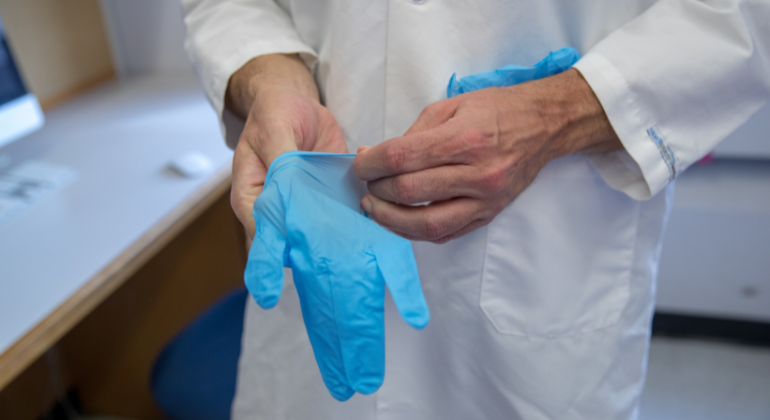
The New England Journal of Medicine Shines Spotlight on Forensic Pathology
Jul 03, 2025 View All Press Releases
